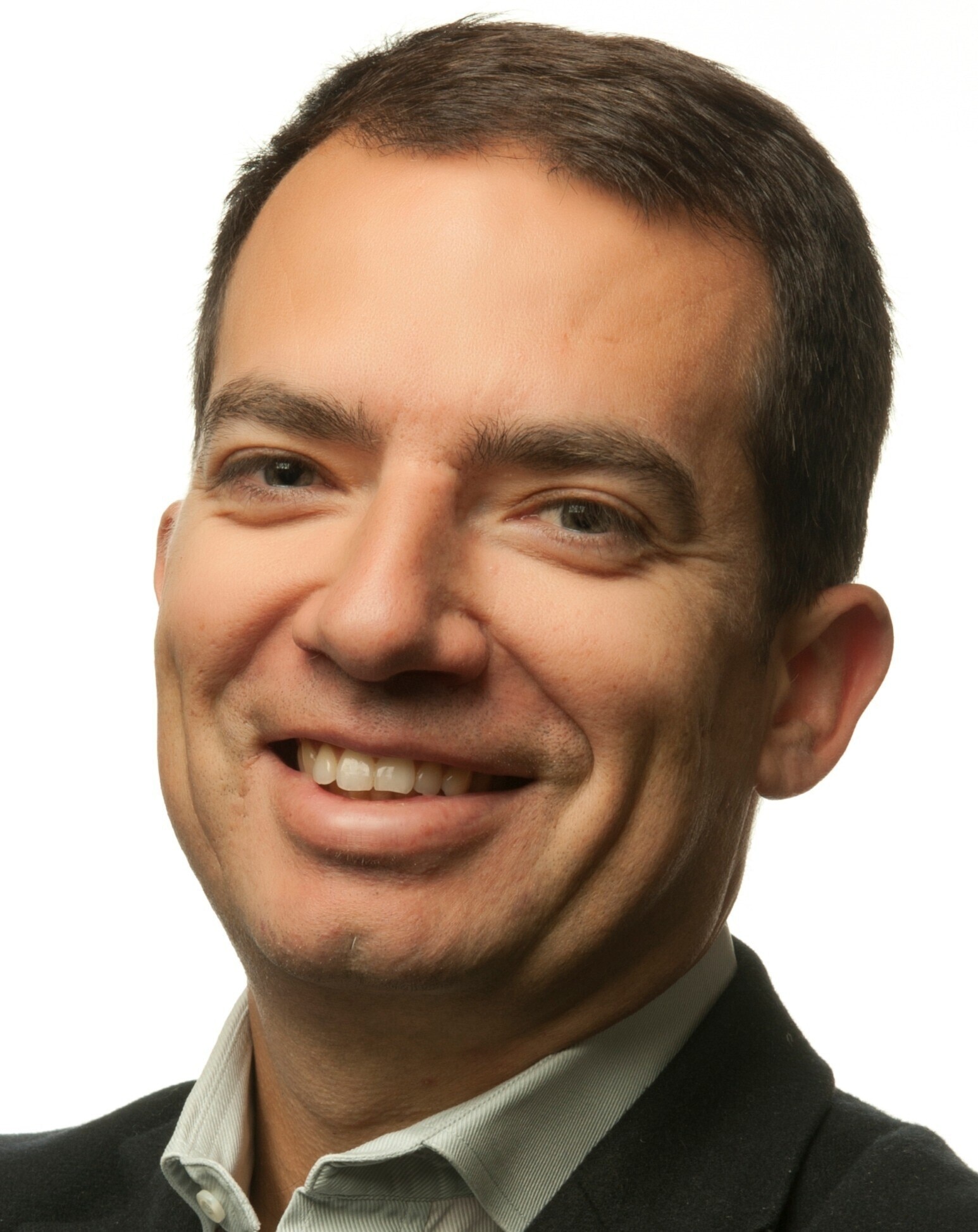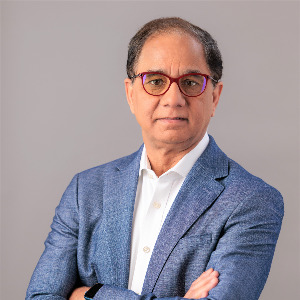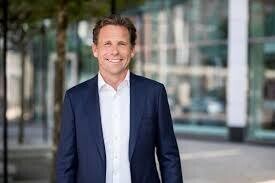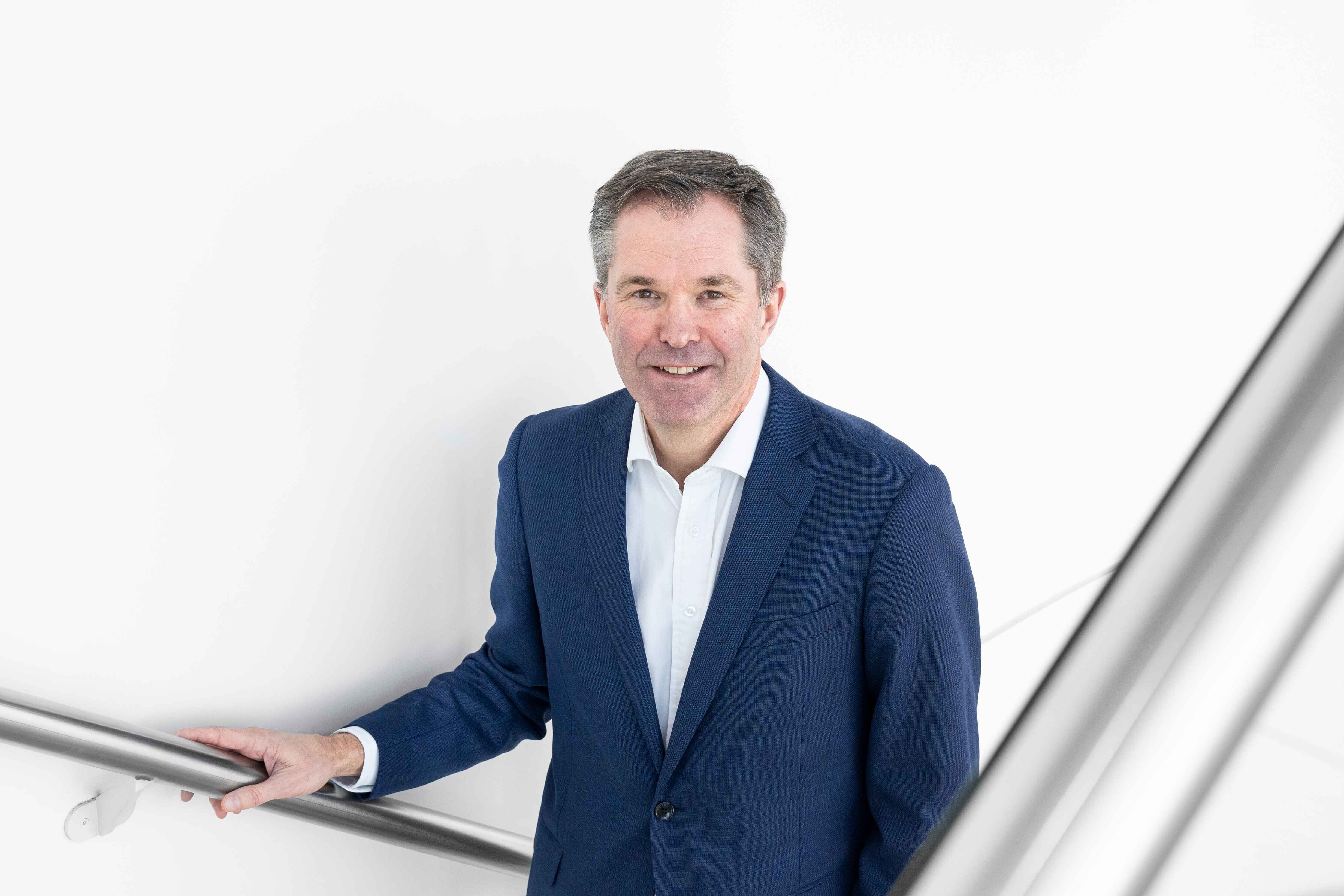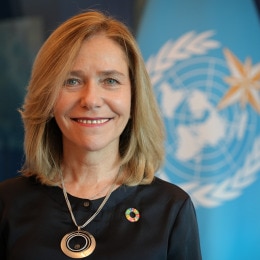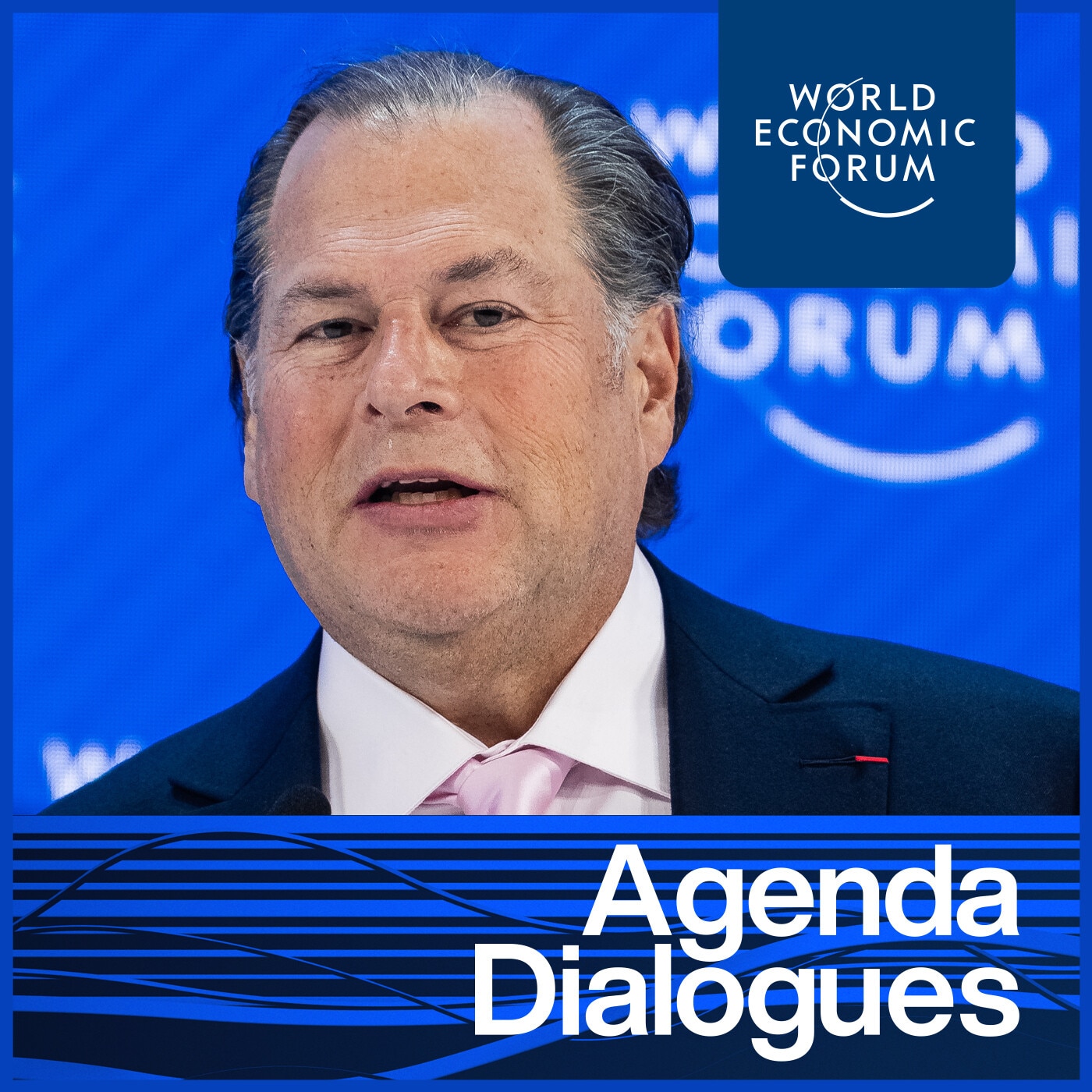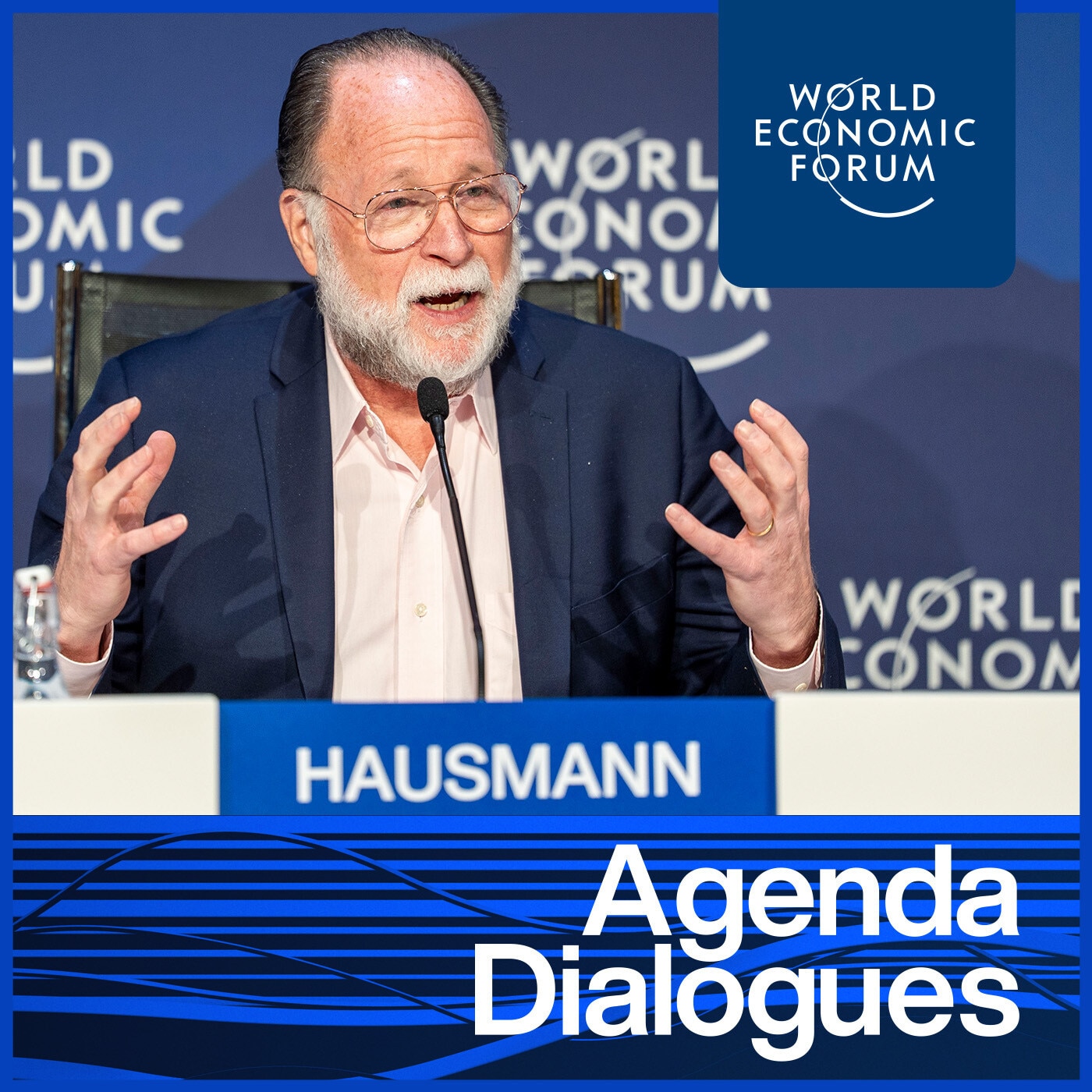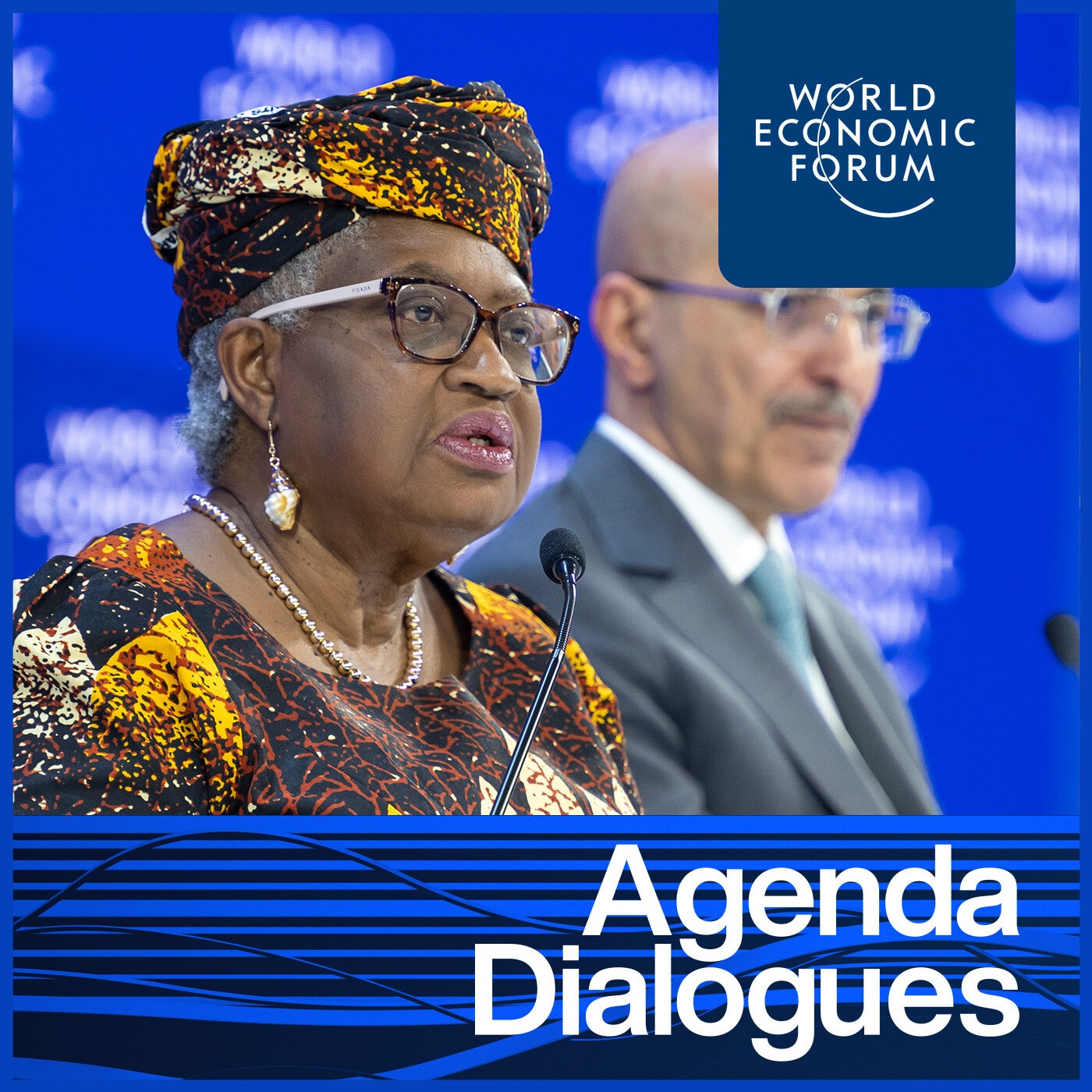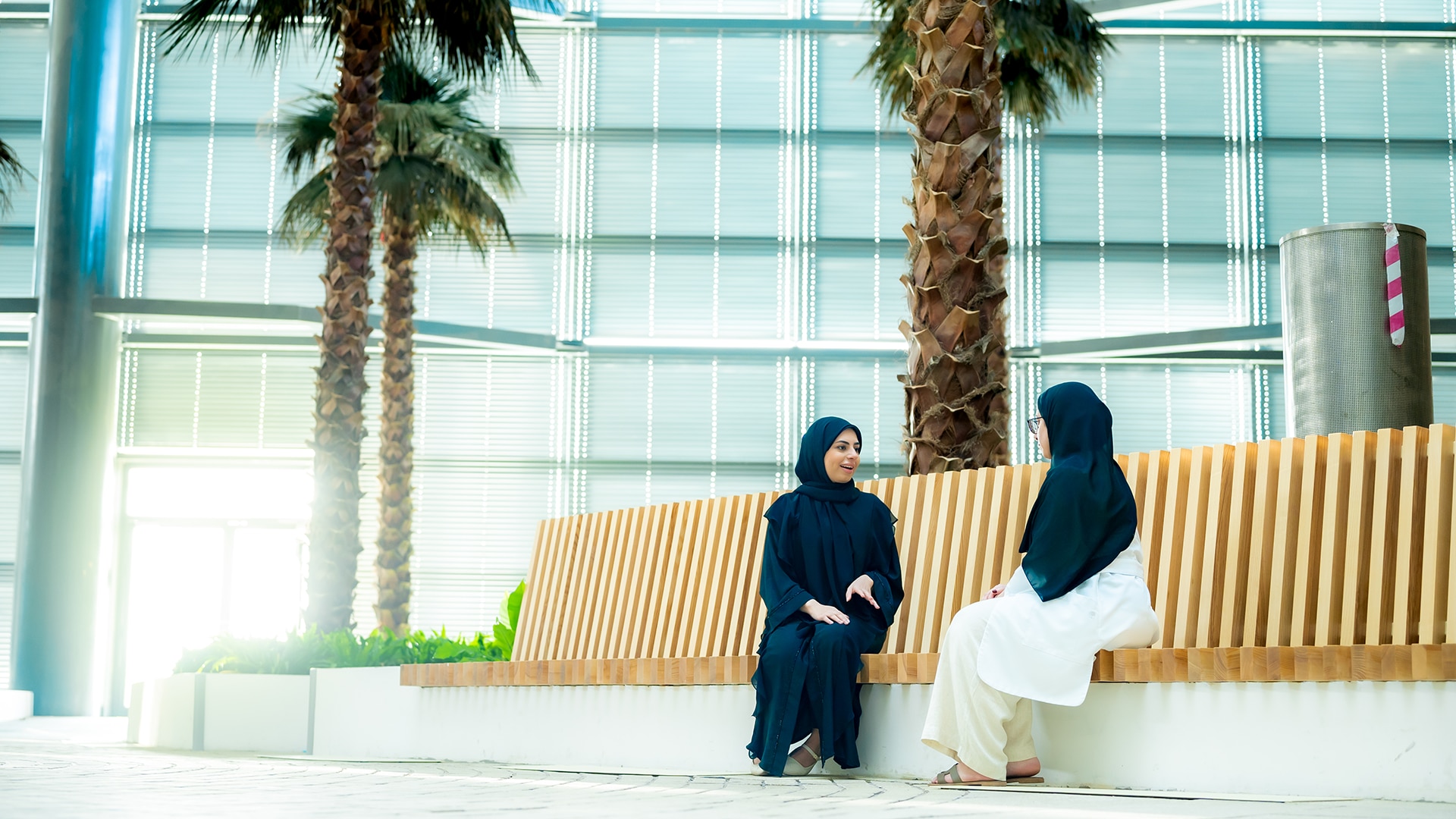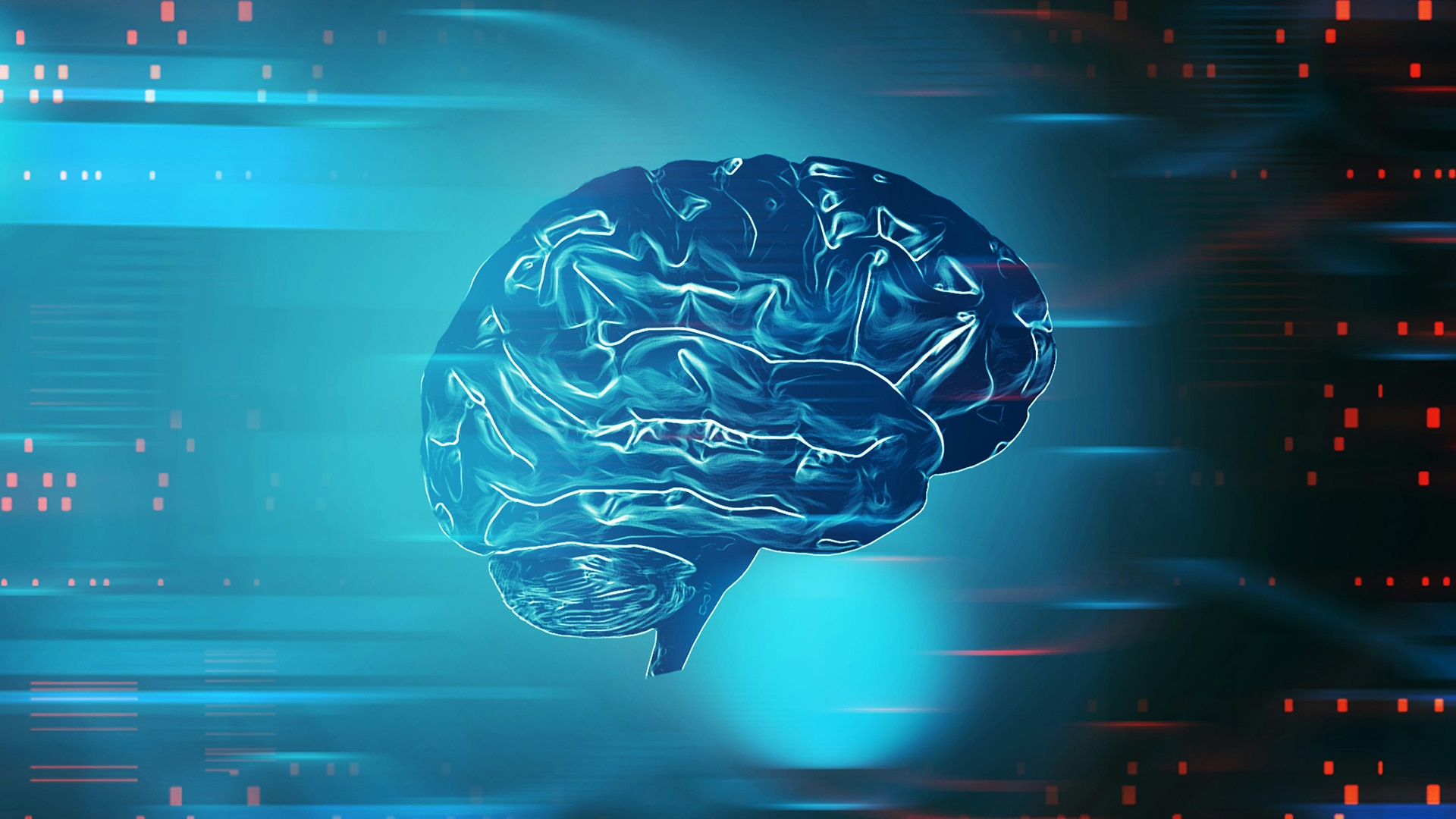When Climate Redefines Health
播客文字稿
This transcript has been generated using speech recognition software and may contain errors. Please check its accuracy against the audio.
Liza Korsten: Well, may I welcome you all here this afternoon. We had wonderful snowfall this morning and now we have wonderful blue skies and we've got an incredible panel and I see a lively audience. So welcome and let's start straight away and let me introduce our panel and I'm going to start with Shyam Brishan from the World Economic Forum. He's head of the Centre for Health and Healthcare. And then we do have our Honourable Minister of South Africa, Minister of Agriculture, John Stearnoser. And then, we also do have Celeste Suolo. She's the Secretary General from the World Metrology Organisation, originally from Argentina. So we're really covering the planet. And then you've got John Arnay. Rottingham, he's the Chief Executive Officer from the Welcome Trust. Welcome. And then David Nibbe and he's Chief Executive officer of NN Group and then Stefano Brancelli, Chief executive officer of Modena. Let me first hand over to Sian.
Shyam Bishen: It's my pleasure to welcome all of you to this very important session on climate and health. As Lisa said, my name is Shyam Bishen, and I'm head of the Centre for Health and Health Care. This session is directly linked to our World Economic Forum Initiative on Climate and Health. So the forum is working very closely with our partners, with Wellcome Trust, and others on this really, really important issue. Which is looking at the impact of climate change on human health. World Economic Forum launched a report last year when we started on this initiative, together with our partner Oliver Wyman, to show that if we continue on the current trajectory, we will end up with 14.5 million deaths by 2050 because of the climate change. So direct impact of climate change will cause 14. 5 million deaths in next 25 years. And it will have an economic impact of $12.5 trillion, $12,5 trillion in global economic impact. So these are big numbers, you know, and we cannot just sit around and not really focus on this. Obviously, a lot of work has been going on on mitigation hysteresis, on decarbonization, which is number one problem, and we need to tackle that first. But we wanna make sure that we also focus on adaptation hysteresis and we prepare the system to respond to some of the. Challenges that the climate change is causing, whether it's an increase in the various disease areas, infectious diseases, vector-borne diseases, respiratory and others. So we have to come up with some good strategies to fix this problem. One of the things that we did with our partners is, again, to look at, especially with the life sciences companies, with life sciences industry, what can we do in terms of R&D? In terms of coming up with new innovative ideas to lower the number of dates and lower the impact on the economy. And we, again, came up with a research report, which was launched last week, actually earlier this week, which talks about spending $6.5 billion. Honours. Over the next five to eight years. $6.5 billion is not a huge amount of money if you look at the pharma R&D budgets. If you spend that $6 billion, you can save close to six and a half or seven million lives and reduce the impact of climate change and global economy by close to $6 trillion. So you can almost halve the impact there. So these are some of the numbers I wanted to point to you so that you realise the impact and how it doesn't take a whole lot of money, whole lot of funding, whole a lot of resources to save a lot lives and to save lot of money and improve our global economy. So with that, I just wanted to thank you all, our esteemed moderator here and esteemed panellists. I know that our time is very limited. We only have 45 minutes. So let me pass it on back to you, Lisa, for the session.
Liza Korsten: Thank you very much. And then let me just quickly share with the audience how we will handle this session. We'll keep it short and to the point. We have a formidable panel that will share their experience, their impressions, and advise us on their strategy and how they think we should link these dots. And then we will actually open it to the floor for questions. And I do ask people, if you do have a question, to please wait for the mic, briefly introduce yourself and keep the question short. So, let me just summarise, and this is a very important point, and that's the message from the World Health Organisation, the far-reaching impact of climate change, and particularly on health. And I think we must not underestimate that. We've heard some of the figures and... How extreme weather will drive this. Now, if we think of extreme weather conditions, I think we've all experienced droughts, floods. I also want to add water, water security, pollution and contamination, and the total disruption of our food systems. So this is serious. It has a huge impact, but most importantly on the community and health. And we therefore need to think of the bigger picture. We need to find a solution. And we need to work together and form a practical way forward. And so today's agenda is going to be getting these cross-sector conversations going. Why do we collaborate? Why should we collaborate, how do we collaborate, How do we action this, how do we explore health care in the midst of these climate change challenges, and of course, the risks. And the what if we don't address it and we are not prepared? How will we then deal? What is the risk implications? How do we mitigate risk? And that's very important. So I'm going to start with our Honourable Minister next to me. South Africa is a very good example. We've experienced climate change in various forms. We have extreme weather, floods, fires. I want to ask our Minister from your government's point of view. How do we go forward?
John Steenhuisen: Well thank you very much and it's great to be with you and of course with the fellow panellists. And there's undeniably a huge nexus between climate change, agriculture and human wellbeing and human health. Food is the fuel that is put into the body to allow it to sustain itself. And when those food systems become under threat, it starts to pose a significant health risk as well to human beings across the globe. But there is a disproportionate risk on those. Or on the more vulnerable side of the equation, your subsistence farmers and small-scale farmers around the globe. And when the sharp edge of climate change starts to be felt there, they often are the first to really start to feel this burden. And with that burden of a lack of access to good, nutritious food, it starts to put a huge amount of pressure on public health systems and health care systems. Things like childhood stunting, things like malnutrition, and then it also has economic impacts as well in terms of the productivity of a labour force in a country. So when we look at the problem, the agri-food system has to be at the heart of the interventions because it is the part of the chain that is feeling the effects of climate change. And so as we look towards systems to build more resilience, We're going to have to focus far more on the type of farming that we're doing, how we're farming, and how we are starting to adapt to this new reality. And of course, in the context of the global south and certainly in continents like Africa, where you don't have the luxury of the budgets that perhaps the global north has, to be able to start to bridge-foam farmers, particularly small-scale and substance farmers, into new farming mechanisms, is new. Breeding techniques with more resilience, you're going to continue to have those particular problems. And then again, with the big thrust on yield over the last 20 to 30 years, has necessitated the use of more and more agrochemicals and irresponsible use of those chemicals now lead to resistance in some instances and higher doses having to be put on, which then does further damage to the ecosystem going forward. I think there are these very clear linkages. One of the things we've done in South Africa, just this last year, we've a baseline report into food security. And what it's allowed us to do is to drill down to a district municipality level, dealing with food insecurity, looking at the burden of childhood malnutrition, wastage, wasting, other co-morbidities associated with hunger. And allowed us then as a government to use the limited resources that we have to focus on food security in those areas, which we are now hoping will be the baseline report for us to measure progress towards us being able to deal with that. But climate is here. It's affecting vulnerable communities in a very, very big way. Just this last year in South Africa, we had too little water with drought in most of the country. Then we had to much water with massive flooding, and that obviously damages... Infrastructure to get food to markets. We had fires, we had snow, and although snow may be a regular occurrence here in Davos, it's not a regular occurance in South Africa, but it obviously does the associated damage to livestock and the like. And then of course we have to look at the nexus between zoonotic disease and that effect on humans as well. So we're going to be using our G20 presidency over the coming year, particularly in the sustainable. And to bring health, science and technology and agriculture together to start coming up with some common solutions to these problems that are now facing us as a result of climate
Liza Korsten: Thank you very much to our minister and I just want to say South Africa's got a formidable presence at Darfur. Several of our ministers are here and senior government officials and we're very privileged and we're looking forward to putting this on the agenda of G20.
John Steenhuisen: Absolutely, very firmly on the agenda of G20, and I think it's going to be very important for us to start to entrench some of the responses to climate change in this G20 to make sure that it remains on the top of the agenda going forward.
Liza Korsten: Thank you very much and since we've got such a distinguished panel here of experts, I'm going to hand over and ask Celeste, which is the previous director in Argentina of the National Meteorological Services. I'm gonna ask you climate change, the related phenomena and the impact on public health and how do you see your role in this multi- and how do we, you see it, addressing it, and how...
Celeste Saulo: Would it evolve? Thank you very much, and it's my pleasure being here sharing this panel today. And let me start with the evidences the minister already mentioned, quite a few. But what we are experiencing due to climate change, for example, are more extreme events. Let me speak about heat, what we call the silent killer. 400,000 people. Are killed every year because of heat. And this number may be underestimated. And this is 30 times the death toll of severe storms, for example. So it's about all these weather extreme events. At the same time, diseases like malaria, cholera, dengue, and so on come from Argentina. So we are experiencing a growth of these diseases. So these are the evidences. At the same time, we know from the International Labour Organisation that 2.4 billion workers are exposed to extreme heat every year. So these are critical numbers, and we heard some numbers, very critical numbers before. So the question is, what are we doing with these evidences? And let me start with a study from the World Health Organisation. Where they see that only 23 countries, only 23 countries, use climate information for health surveillance. 23. And if we go to the World Meteorological Organisation from my side of the coin, only 26 meteorological services work with the health ministries to really develop early warnings for health. I think that it is clear that what we should do, there are opportunities for improvement and that is what I want to highlight. If 23 or 26 out of 190 something are working together, this points to partnership. We are speaking about interdisciplinary approach to problems. It's systemic approach to issues. You spoke about food security. We are talking about health. I'm speaking about weather and climate. But in the end, we have to work all together. And so for us, we see as the multilateralism, we see an opportunity in working with the World Health Organisation. In fact, we had... An expert group between World Meteorological Organisation and World Health Organisation to really address and provide the technical expertise that countries need to really develop their early warning systems for health. And this is a very interesting experience. We are also working and with this work between World Health organisation and World geological organisation. We are supporting the global heat health integrated network. This is a network and partnership between the academia, of course, the operational net services, and all the partners that are interested in joining this effort, because we need to understand how health is affected. There are obvious channels of work, but there are so many that need much more understanding. So I would like to highlight also here we have welcome trust and certainly the role of all the partnerships that we could bring because of course for the meteorological service they have a huge daily work with providing forecast early warning so how do you engage the health community meteorological community and other communities together they need support They need resources. And we are very proud of having philanthropists like Welcome Trust and of course also Rockefeller Foundation. They are helping us to put all these resources together to help countries develop their own resources. In the end, what we think is important is not to have something centralised, but have something that really addresses the needs of each country. So I'm very happy to be here and I will be... Really interested in discussing with our colleagues today.
Liza Korsten: Thank you Celeste. You know you're highlighting a very important point. You're talking about science facts and we have the technology yet we're not using it. You are saying 23 countries, my goodness. So I think that's a very key point. And of course you mentioned heat and you know heat's also got a huge impact on animals. I'm just thinking of rhinoceros and how that will impact on that population. And, of course, pests and diseases and driving it. So with that... You know, all research is fine and we can put the evidence on the table, but we have to fund research and support it and drive it. And with that, I think a sterling example of the Wellcome Trust. So I'm going to ask you, John, and John, of course, very interesting. You've previously been the ambassador, Norway's ambassador for global health. So health is close to your heart, and with that I want to ask you Welcome Trust's crucial role, important role.
Speaker 5: Thank you, and thanks, Celeste, for mentioning our partnership as well. So, WELCOME is here to support science to improve health for everyone. So, that's about health equity, vulnerable communities, and the issue then, why should we be concerned about climate? Because climate is an economic crisis, a political crisis, but we've heard the evidence it's already a health crisis as well, so I actually only have a very simple message, and that's we need climate and health evidence to really inform... Our climate actions and that's about research, analysis, data and to translate that into policy making. So thanks Minister for having this high on your agenda. Because we believe that you need both better climate evidence and local evidence, local data because that's meaningful for local communities and we need that on the climate side and we needed on the health side, so on the Health Impact side. We are proud of the partnership, we support the joint work of WHO and the World Meteorological Organisation. We know it's a big challenge. We heard about the direct impact on health from heat, numbers, we all have numbers of course, but it's almost a trillion dollars actually in loss of income just due to heat. And then we have all the indirect impacts through the food system just as an example. So, how can we? Improve this data to inform action and it's about informing action on adaptation and we believe we need more local data to to actually adapt because we need warning systems. I didn't know the numbers of the number of countries but then let's say only around 25 countries actually actively doing this it's that's 175 countries not doing it so that's that the other side of coin. So how can we use that? Both to do warning systems, but also to model future scenarios. And I think probably Stefan would discuss the issue of what's the future? How will the future change in disease pattern, in climate sensitive infectious diseases? And how can we already now start planning for that? We need also R&D on that and we need new solutions. And then on the mitigation side, we need to look for the co-benefits, because health is important for people. And I'm glad you talked about the need to actually really have lower carbon footprint on the food we both produce and the eat, and then how we can also work on co-benefits to reducing air pollution from coal and other fossil fuels. So it's a collective agenda, and even though we are a science-supporting organisation focusing on health, we want to bring in the way of the health. Issues onto the climate agenda, and that's our key mission, why we have actually made climate and health one of our key priorities. Thank you.
Liza Korsten: Thank you very much. Very important point, local evidence, funding research, generating the data. But now we need to take it further. Do something with the data is very important. You mentioned future scenarios. That's critical for us. And mitigation. And what better person, David, to ask you from a background from banking money, what is your take? How can we bring the insurance sector in? And
David Knibbe: Yeah, no, obviously, insurance, I mean, we've been seeing this trend for a long time, that the weather is getting more extreme, we see more droughts, we just saw horrible floods again in Valencia, we operate as an end in Europe and in Japan, but it is a broad industry discussion. And typically two things happen if we don't pay attention. One, insurance premiums will continue to go up, and we see more and more exclusions. And it used to be, you know, tornado risk in Florida, But by now, we see more and more areas where... You know, things become uninsurable and unfortunately that often impacts the people that need it the most. So that's all very, you know that's clearly not a good trend. At the same time the insurance industry and certainly after the great financial crisis we've all learned we shouldn't load any risks on our balance sheet that we cannot carry. And some of these impacts are so big that we simply cannot carry the risk ourselves. So I think there's two areas that we've been working on as an industry and one actually ties very much into what you guys are saying on local data. I think the insurance industry and helped by the reinsurance industry is getting increasingly good at estimating risks in local places. So what is the local risk on floods, on fires, on extreme weather situations which can be quite local and we're also increasingly good then estimating the damage. And that actually, and we've seen some positive examples of that, that actually gives us an opportunity to engage, for example, with cities or with provinces on early warning systems, but also on making some improvements in infrastructure, in making some improvement in houses that actually then reduces, I mean, the weather will still be extreme, but it actually will reduce the impact. And it's very local, because impact typically is very, very local. But I think with the data analysis we can build business cases. And we can evidence where you say, all right, if we invest this in infrastructure, the risk of floods will significantly come down, and it might become an insurable risk again. So I think that's one thing that we are trying to do, but it needs to be in a partnership. I think the second thing is, if you do all this, there's still going to be a big residual risk. It will never be no risk. And I think The Netherlands is a good example on floods. I mean, we were talking about how wonderful the snow is, but quite a bit of that snow ends up in Holland. We are 40% below sea level, so you can imagine how important it is to deal with floods. And reality is, if we get big floods in the Netherlands, the government will declare a national emergency. There's no way insurance can cover this. Now we had a very bad example in south of the Netherlands Germany and Belgium in 2021. And what happened there, hundreds of people died. And We were literally, as an insurance company, in houses where there was a metre of water and we had to debate with customers on, all right, this water, is it vertical water, meaning it's coming from rain, because then we cover it, or is this horizontal water, does it come out of the rain or the big rivers, because it's covered by the government, however if it's a small creek we cover, I mean it's an impossible discussion. And so we ended up just as an industry paying for it, but that's not a sustainable solution. So what we're now working on together with the Dutch government in this example is, let's do risk sharing. So if this happens and the prevention doesn't work, we will take care of the claim handling, we will pay out, but in the back door, we need a co-sharing on what is covered by national emergency and what is cover by insurance. But that way, at least we can still provide some proper coverage for people that need. Now, it requires a lot of debate. Governments are suspicious. They think we might play tricks on them. So it's a lot of work. But we're actually making good progress. I don't see how else we can do this. We're going to have to do this in partnerships, because the risk is simply too big to carry by an individual firm.
Liza Korsten: Sure, that's very sobering words. There will never be no risk. It's a reality. And I think the impact on the communities that can afford it the least, and this is just going to exaggerate the inequalities we already have. And I I think Africa is most certainly going to be really affected. And I like what you're saying about risk sharing. And that immediately takes me to our next speaker, panellist, Stefan, from the pharmaceutical sector. I mean, the link is clearly there between research and funding and supporting it and risk management and from a pharmaceutical solutions. How do we connect this? How do you share the risk?
Stéphane Bancel: Sure. I think there's a few things. Celeste mentioned tropical disease, Dengue, Zika, Chikungunya. Not only you see those being more and more prevalent in the South, but those are starting to be diseases of the North. If you look in Europe, from Portugal to Greece, you have people that have Dengues, people that Zika who don't travel. Same in America. If you at the US, in Texas and so on, Caribbean, Florida, you have those diseases. So one other thing we are doing is we are developing vaccines. We have a phase vaccine against Zika. We have a vaccine clinic against chikungunya and we're trying to work on a new dengue vaccine. And especially because of mRNA technology allows combinations instead of having a vaccine for each of those pathogens, just having a combination to protect across the board. The other piece that Celeste talked about is heat. And of course there's a lot of direct deaths from heat that Celest described. But the most more worrying thing about heat for me is the impact it can have on sleep. And poor quality sleep. So if you think about it, I think we have a huge role of education, which is think about people who don't have air conditioning. You go for a week, two week, three weeks of very poor sleep that has two big impact. One is brain health. I think about older person acceleration of Alzheimer, Parkinson or other brain disease. The other one is immune health. It is very well known today that the immune systems rest and strengthens during the night through good sleep. So think about the scenario where you have an older person. Who goes a couple of weeks with very poor sleep, gets infected through a mosquito by dengue or Zika, that person might die. In a parallel universe where that person will have good sleep and vaccinated, that person will have a normal life. And make it even worse, as the minister described, if it's poor nutrition and lack of vitamin C or D, which are very basic vitamins for immune health, you might have a very, very bad outcome. The other one is, of course, air quality. And I go back again to education. Think about LA and the horrible fires in LA. People losing their lives, some people losing their homes and their entire wealth, and the impact of quality of air. Think about all the chemicals released in the atmosphere. For the children, people with heart disease, with lung disease, it's just a total health disaster. And I think in terms of communication, we, the pharma industry, the doctors, the governments have to do. Even a better job communicating those hazards to people. Because most people know more about their iPhone and how it works than about how their body works. Which is very sad because even though it's expensive, you can go buy your iPhone for $1,000. You can go by a new lung or a new brain for 1,000 bucks. And so I think there are things we can do and there are some actions that are good for your health and for the climate. And two obvious ones. One is red meat. It is well documented that eating too much red meat is really bad for your heath. So yeah, it's very bad for the climate. Because we basically destroy forests that are really the lungs of the earth to be able to feed animals that we're going to then feed people. And the only thing is plastics. It's more and more documented that plastic is not only terrible for the environment, but it's terrible for health with microplastics, increasing strokes, including cardiac events. So there's a lot of things that we all need to do collectively to educate the public and to educate doctors so that we can change habits and behaviours.
Liza Korsten: Thank you very much, very powerful. I think what's coming out that I really like, it's a shared responsibility. And people must all take responsibility. I think we tend to look at the television and say, oh, there's a flood somewhere else. It's not affecting me. I didn't make the connection with No Sleep and the link with climate change driving it and communities where you just don't have access to air conditioning. And then... Obviously linking that with brain health and the increase in Alzheimer's and we've seen the prediction going forward that it will affect the younger generation. So we clearly have a challenge on hand and with that I'm going to open it to the floor. I think we have a formidable audience and we have some questions and time for questions. Please introduce yourself briefly, and there's a microphone on its way.
Speaker 8: Hi, thank you for this incredible panel. I'm Iqbal Dhalival. I run the Poverty Action Lab at MIT's Economic Department in Cambridge. So as you can imagine, sitting in Cambridge, I'm surrounded by Harvard and MIT. And there are scientists who are at the cutting edge of inventing new technologies, whether it is cement that uses less carbon or pulling out carbon from the air. And I think all of that is fantastic. But at my lab, we have identified thousands of low-hanging fruit. Whether it's on sleep, whether it's on reducing heat, the impact of heat on school, on education. And yet, I see that when I go and meet policymakers, when I meet foundations, when I need industry, everybody asks me, OK, what's the latest, greatest technology coming out from MIT and Harvard which is going to solve this problem for us? And I somehow feel that we are all searching for this silver bullet when the solutions are kind of staring them in our face. And so what can governments do? Like, for instance, Minister, you about the G20 presidency. What can the Wellcome Trust do? What can foundations linked with Moderna do to have these technologies, which already exist, start working while hopefully the silver bullet comes into play, because it might just be too late by then.
Liza Korsten: Thank you very much. That's a powerful question. I'm going to open it up. We've heard the message clearly to government and science and funders. There is a lot of low-hanging fruit.
John Steenhuisen: Yeah, I think there's a lot of low-hanging fruit out there and, you know, being in government now you start to realise how important it is that governments are agile when it comes to new technology. I have the experience that, you get caught in channels and you do things because that's the way it's always been done. And we have to change thinking as governments to be able to adapt far more rapidly and in a far more agile manner to new technologies and to embrace them rather than to see them with scepticism. But I think the key word, and it comes back to the G20, is partnership, because the insurance issue is another good example. There's no way that insurance companies are going to be able to bear the disproportionate burden. And governments can't bear it on their own as well. And we've seen that in South Africa. We can declare a disaster. But do the funds follow the declaration? And how soon do the fund follow the declarations? So I think that using blended finance schemes through development banks, I think we'll be able to work together with insurance companies, as well as the banking sector, to come up with more blended finance models, where we can start to bridge some of these gaps and provide cheaper, more accessible insurance packages or options for emerging small farmers to be able to be covered over the, at the moment, majority of them are outside of the affordability net of of insurance. And when a small-scale farmer is wiped out with avian flu or drought or flooding or some other natural disaster, the chances of getting back on their feet again are very limited. And they're lost from the agri-food system forever. And so we need to find more innovative ways, I think, about helping people bridge these gaps. And the government and the private sector have a partnership role to play.
Liza Korsten: Fantastic. I'm going to ask David to respond from insurance and then also from Wellcome Trust, a very important message. Yeah, that's a very good question.
David Knibbe: It's a very good question, and I'm not saying it's perfect. Unfortunately, it's not MIT or Harvard. But we do have the Technical University in Delft and University in Amsterdam, where we have cooperation, one on longevity and the one on all the Technical University in delft, on what new technologies, what new building structures are there, and how can we ensure and play a role in that. Because one of the things we've discovered, that when new technologies come, they come out. And ultimately, at some point, they're deployed. And then we don't know it, and we decide not to ensure it. Recycling was a good example. We had recycling companies, they became more and more important, couldn't get insurance because things could go on fire, there's gas coming out, and we had to work with the industry actually to find a way that they do better prevention, maybe there's some exclusion, but now it's an insurable risk. And we don't want to make the mistake with recycling that we now have made with new technologies. So there's a lot of work being done, but no doubt we can do more.
Speaker 5: Thank you very much, John. Thanks for that challenge. We have the evidence, but I think we still need more evidence, because all action leads to counteraction, and the point is that this is not interest-free, power-free zones. Most of the actions you recommend will mostly change economic interests, cultural issues. Many like the red meat, or I like my red meat maybe. What is the challenges of the... The energy mix, is it what's better than, I come from a country that is rich on energy and we can always say that our energy is better than the worst energy, but it's not as good as our hydropower. So I actually think we need to translate that evidence into real difficult discussions and it's about politics in the end and it needs to be squared by politicians. So that's why we believe the evidence based on health impact is key because People are concerned about their health and they have the responsibility. We all have the responsibilities to elect our best politicians.
Liza Korsten: Thank you very much. I think we have a one short question behind me
Speaker 9: And I wanted to build on the very good point that research and evidence needs to be policy relevant. And I think that I would agree with the latest point as well, that there's a lot of research on the issues that we face. And that's really helpful for raising awareness with the public, for example, like was mentioned with air quality. What I see quite a lot less is research about the most effective solutions. And especially where there are complex problems and interactions, like was mentioned about extreme heat causing wildfires, causing more air pollution, which causes more extreme heat. And we're too often seeing solutions that treat the problems in silos. So I wondered what, maybe from the government perspective and also the funder perspective, what examples that you see of effective research that treats the problems as complex This book provides. Evidence for policymakers about which are the most effective solutions.
Liza Korsten: Thank you. I'm going to ask Celeste to start with responding from a research point of view.
Celeste Saulo: OK, thank you very much. And thank you, very much, it's a very nice question. Also coming from the United Nations system is a way that we can approach the governments and help the countries to develop new policies. And I think we need to open that. And certainly I love the idea of having research that goes into the solutions. I come from the academia as well. And usually we have our papers out, but we need to translate those papers into actionable material for the governments. And that jump is huge. And certainly the United Nations, World Geological Organisation and other organisations can help countries translate this knowledge into actionable policy making. And or request the academia to work further into some new decisions or issues. So I think that there's a huge world of opportunities being aware that we need a systemic approach and avoiding the working in silos.
Liza Korsten: Thank you very much and unfortunately our time is almost up so I'm going to actually start with Stefano. I want everyone to give me a power punch concluding sentence, a message, a take home message to everyone.
Stéphane Bancel: I would say educate yourself because what's good for the planet most of the time is great for you.
David Knibbe: Climate change is unavoidable, so let's focus on prevention.
Speaker 5: Science-based solutions are key, but actually science-based implementation of those solutions and actually understanding that that is a negotiation. It's a negotiation in society, so it means it needs to be local. We are, hopefully by the end of this year, investing in three centres in Africa that will both do the science but also do the Science Translation and having discourses with governments in those sub-regions of Africa, because we need local action. And we need to find the. The business cases of actually where government and private sector can come together to find solutions.
Liza Korsten: That's a very powerful message and I really like that science translation in Africa, that's fantastic.
Celeste Saulo: And I would add, certainly communication. This was highlighted by Stefano before, and I would like to bring that. Because I think that sometimes we read the superficial part of the story, and we don't go deep into the story. The storytelling. That really is the one that captures the heart of the people and can change the action and the reaction.
Liza Korsten: Thank you very much, action for all. And then Honourable...
John Steenhuisen: I would just say that government has to move towards evidence-based policymaking, evidence- based decision-making. And that policies must then be measured not on their intentions, but on their outcomes. And where moderation or adjustment is required, government must be agile and nimble enough to be able to do that. But it comes down to being evidence and data driven. And that's what must guide government in its decision- making.
Liza Korsten: Thank you very much. I think this was a power-packed session. Thank you, very much, to our panel members for sharing your thoughts, for giving us words of wisdom and directing us. We do hope that the G20 will provide more food for thought and take us into the future. And the reality is climate change is here. It's going to affect all of us and we need to come up with holistic solutions and get out of our silos. So, and we're together. So this session is very important to create that networking and that public-private sector partnerships and make sure that we base this on scientific facts. So I would like to thank everyone who attended our session. I hope you'll take a message home and action it so that next year when we meet again, we can actually share the fruit that we've harvested. So thank you very much for your time. Thank you very much.
Research indicates that 3.6 billion people live in areas highly susceptible to climate change and, by 2050, the climate crisis could cause $1.1 trillion in extra costs to healthcare systems around the globe.
How is the resilience of key sectors to climate change being measured and how are key actors responding to safeguard public health?
This is the full audio of a panel discussion at the World Economic Forum's Annual Meeting on 23 January, 2025.
Guests:
分享:
更多集:
每周 议程
每周为您呈现推动全球议程的紧要问题(英文)
